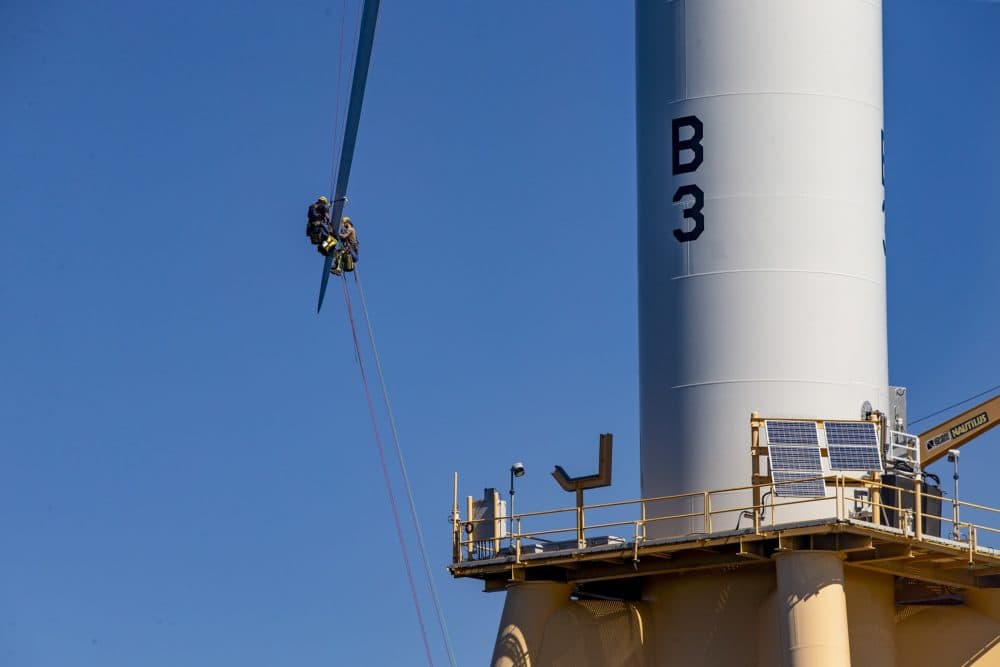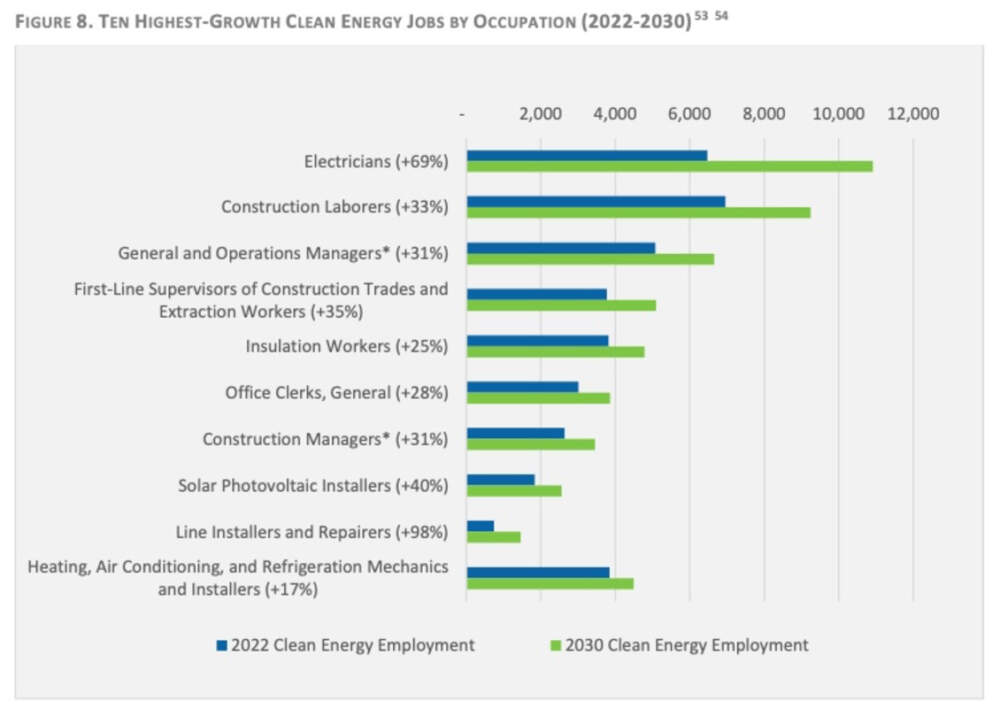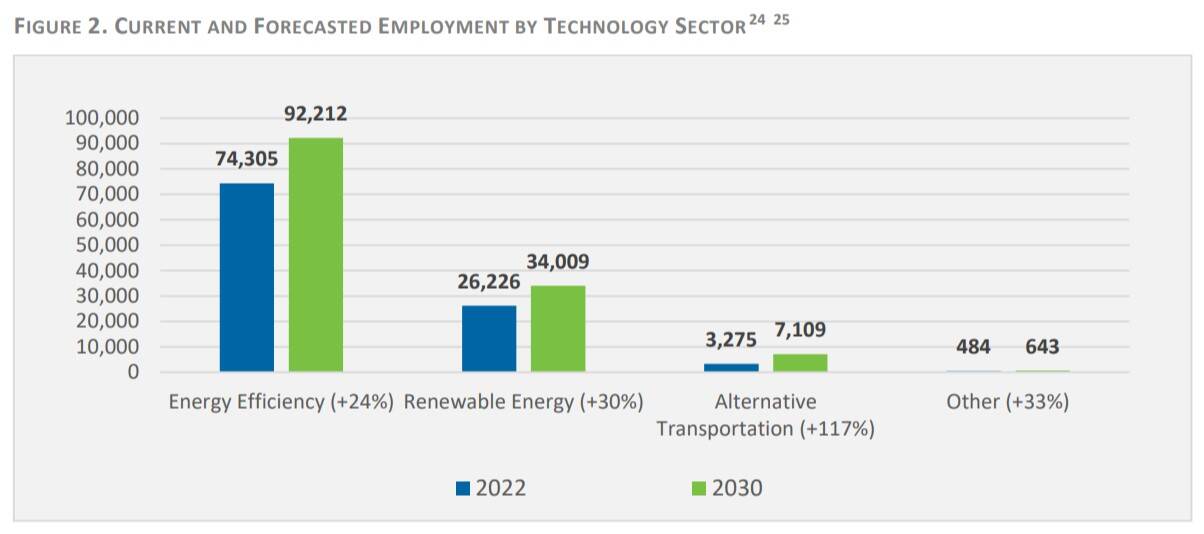Advertisement
Labor crunch will threaten clean energy expansion in Massachusetts, report says

Massachusetts's lofty mid-century climate goals hinge upon the state's ability to convince residents and businesses to make the switch from fossil fuels to cleaner electric power, but success will also require tens of thousands of people to take new jobs in the clean energy sector.
A new workforce needs assessment released Wednesday from the Massachusetts Clean Energy Center found that the state's clean energy workforce will need to grow by an additional 29,700 full-time equivalent workers in order for Massachusetts to meet its target of a 50% reduction in greenhouse gas emissions by 2030.
And during a time of low unemployment and a declining labor force participation rate, MassCEC said getting there will actually require 38,100 workers to be trained and ready to work some or all of their time on climate-critical jobs.
"The transition needed is daunting in scale," MassCEC CEO Jennifer Daloisio said.
She added, "The clean energy industry must grow by nearly 30% by 2030 and 74% by 2050 amid an incredibly tight labor market, and our future clean energy workforce must expand through inclusive practices that recognize that a diverse workforce is a robust and resilient workforce."
Like many employers across Massachusetts, clean energy companies are already having trouble hiring new workers. MassCEC said that 88% of sector employers surveyed in 2022 said that they faced challenges in securing talent for clean energy positions.
"The rapid expansion that needs to occur across all sectors of the clean energy economy will further exacerbate labor shortages and hiring difficulties," the MassCEC report said. "Without significant and purposeful intervention, there will simply not be enough interested and qualified job seekers for the number of additional workers needed, as many of the highest-growth clean energy positions will also be in high demand by other industries in the economy."
Because of the competitiveness of the labor market, MassCEC's report said the clean energy sector will have try to attract workers by tapping into "strategies that not only expand pipelines of clean energy workers, but also increase awareness, access and engagement within communities and populations who have been historically disadvantaged, excluded, and over-burdened by climate change, pollution and rising energy costs to enter these pipelines."
Advertisement
That includes things like forging partnerships with workforce development organizations and community groups that could customize the messaging to resonate with different demographic groups and communities, and working with Department of Elementary and Secondary Education initiatives that already are focused on early career awareness and exploration.

"Whenever I speak with young people who want to make a difference, I tell them that the heroes of the clean energy transition will be electricians, plumbers, and builders," Energy and Environmental Affairs Secretary Rebecca Tepper said. "Exposure to these valuable careers to students at younger ages will place them on successful paths of upward growth."
MassCEC projected that decarbonization efforts will lead to new jobs across 144 distinct occupations, but said that 65% of all employment growth will occur across just 20 occupations. Meanwhile the jobs expected to be high-growth or that are more likely to cause workforce bottlenecks will require particular attention, the MassCEC report said.

"For example, keeping pace with the demand for electricians, a career that requires between four to five years of training, will necessitate concurrently expanding existing training programs and establishing additional programs, including pre-apprenticeship opportunities," the report said.
The report also suggested ways to to help the state equip workers with new skills to. It noted post-2030 projected declines in demand for pipefitters, pipe-layers, plumbers, pipefitters and steamfitters could be offset by the rise of technologies such as green hydrogen, which is on a similar time horizon and could present opportunities to transition these workers.
MassCEC estimated the number of fossil fuel jobs in Massachusetts will decrease from 58,000 to 56,000 (down 3.4%) by 2030. Decreased demand for gas station attendants represents the greatest potential loss of fossil fuel-related jobs by the end of this decade, the report said.